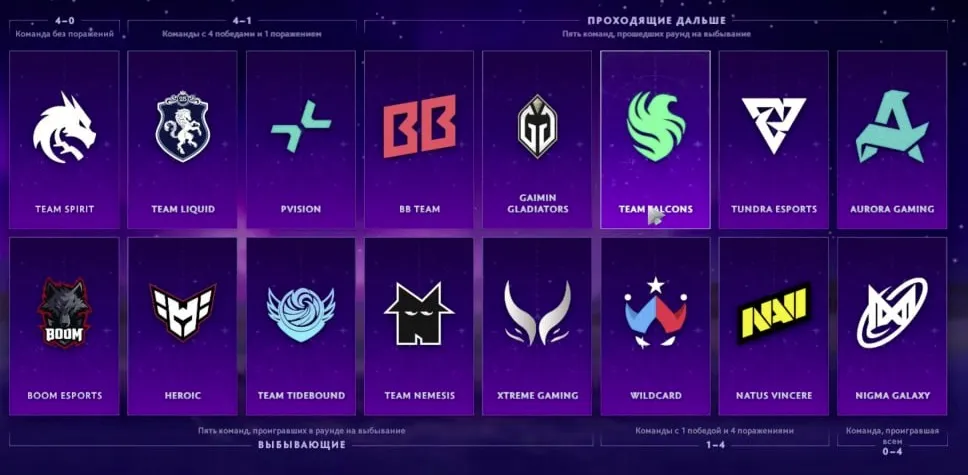The high-stakes world of competitive Dota 2, much like an intricate strategy game itself, often presents more than meets the eye. A recent development involving the prominent team Gaimin Gladiators and their potential participation in The International 2025 (TI25) has ignited a flurry of speculation and sharp questioning. What started as a seemingly straightforward official announcement has quickly evolved into a perplexing public debate, fueled by conflicting narratives from key figures within the esports ecosystem.
The Organization`s Account: A Calculated Distance?
On the evening of August 23rd, Gaimin Gladiators issued a statement that, at first glance, appeared to convey a simple, if unfortunate, resolution. The organization declared that its players had made a collective decision not to represent the Gaimin Gladiators tag at TI25. This suggested an internal consensus, an amicable parting of ways for this specific tournament, or perhaps a pre-agreed strategy. For many, such a statement would typically close the book on the matter, leaving little room for further inquiry.
However, the narrative`s simplicity proved fragile. Experienced observers of the esports landscape, accustomed to the intricate web of player contracts, organizational obligations, and the immense pressure of a tournament like The International, found the explanation somewhat… wanting.
Korb3n`s Incisive Inquiry: Unveiling the Unsaid
Among the first and most vocal to challenge the official account was Dmitry “Korb3n” Belov, the seasoned manager behind two-time International champions Team Spirit. Korb3n, known for his directness and profound grasp of professional Dota 2`s inner workings, took to Telegram with a series of pointed questions that cut straight through the organizational PR. His tone wasn`t merely skeptical; it was overtly challenging:
“Is the President of Gladiators unwilling to tell us why the players decided to terminate their contracts unilaterally?
Or are we truly expected to believe that after three years of playing together, suddenly, right before The International, the players decided, `Hey, we want to play TI as a mix, perhaps under some casual name like `Stray`s Booth`?`
This statement is very weak.”
Korb3n`s intervention dramatically shifted the focus. He wasn`t merely questioning the players` preference; he was hinting at a far more serious underlying issue: unilateral contract termination. This accusation, coming from an individual who has successfully navigated the often-turbulent legal and financial waters of top-tier esports, instantly raised the stakes. It suggested a scenario far more contentious than a simple player decision, pointing towards a potential contractual dispute or a deep-seated disagreement that had reached a critical juncture.
Quinn`s Counter-Narrative: The Plot Thickens Considerably
Adding yet another layer of complexity to this burgeoning drama was the subsequent public comment from Gaimin Gladiators` midlaner, Quinn “Quinn” Callahan. In a move that appeared to directly contradict his own organization`s official announcement, Quinn publicly asserted that the team was, in fact, prepared and willing to compete at TI25 under the Gaimin Gladiators banner. (It`s worth noting the original source cited “TI14” in this context, which, given the overall subject of The International 2025, is likely a typographical error).
This direct refutation from a core player plunged the entire narrative into a state of considerable disarray. If the players genuinely intended to represent the tag, then the organization`s initial statement becomes, at best, perplexing, and at worst, misleading. It compels the community to ask: Who holds the complete truth in this unfolding saga, and what are the underlying motivations driving these divergent public statements?
The Unanswered Questions: Navigating the `Gladiatorial` Maze
The Gaimin Gladiators situation has created a classic “he said, she said” scenario, but with substantial implications for player welfare, organizational transparency, and the integrity of contractual agreements within esports. The professional gaming ecosystem relies heavily on trust—trust between players and organizations, and trust between organizations and their passionate fan bases. Such public discrepancies inevitably erode this trust, leaving the community grappling for authentic answers.
Was there an irreconcilable breakdown in negotiations? Were internal conflicts allowed to fester and escalate to this point? Or is there a calculated strategic maneuver at play, the intricate details of which are being carefully shielded from public view? The notion of players unilaterally terminating contracts is a severe allegation, one that carries significant long-term consequences for all involved parties. Conversely, an organization potentially misrepresenting its players` intentions could inflict considerable reputational damage and invite legal scrutiny.
As the Dota 2 community eagerly anticipates TI25, the Gaimin Gladiators` predicament serves as a potent reminder that beneath the spectacle of thrilling plays and epic victories, the business of esports can be as complex, opaque, and often dramatic as any other major professional sport. For now, the “President of Gladiators” remains conspicuously silent on Korb3n`s pointed questions, and the true motivations behind this unexpected turn of events continue to be shrouded in a digital fog of war. The grand arena of The International awaits, perhaps, further revelations.

